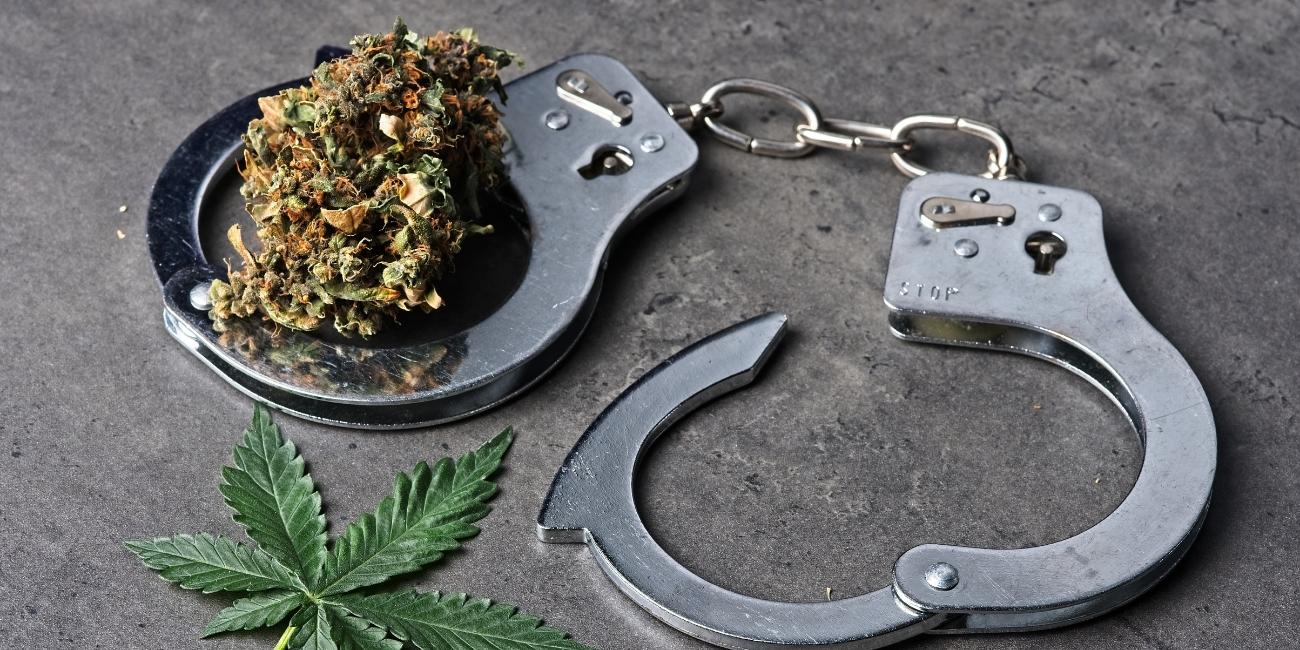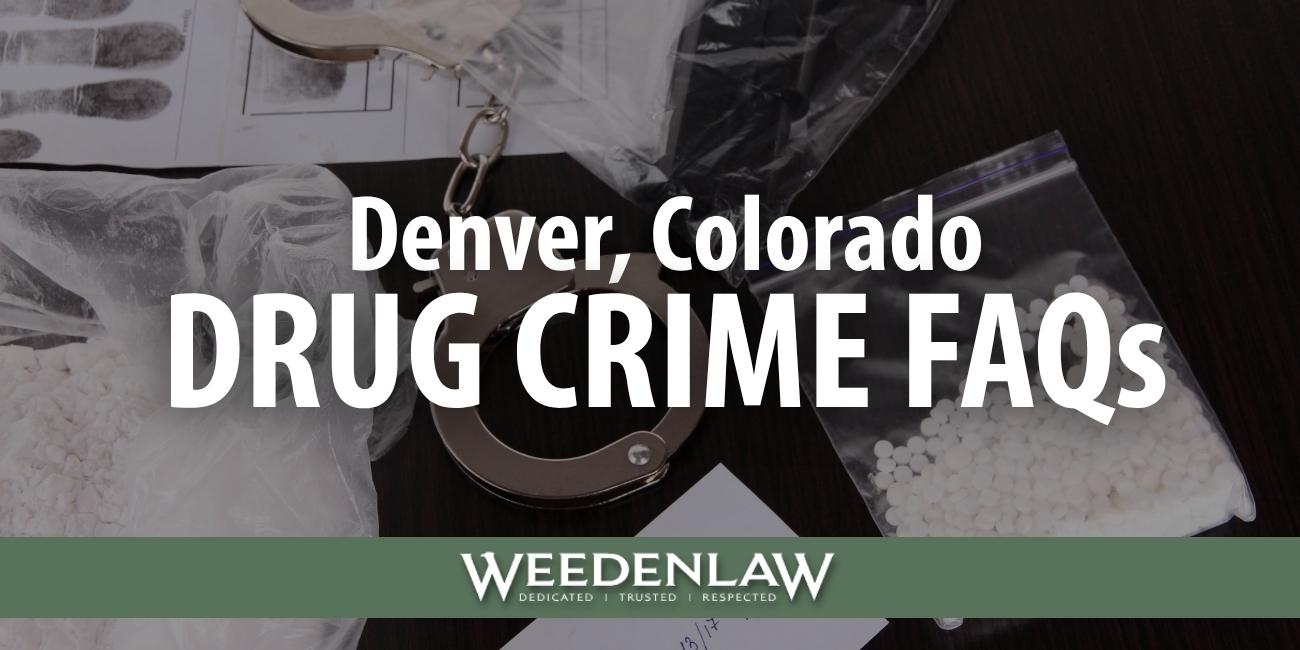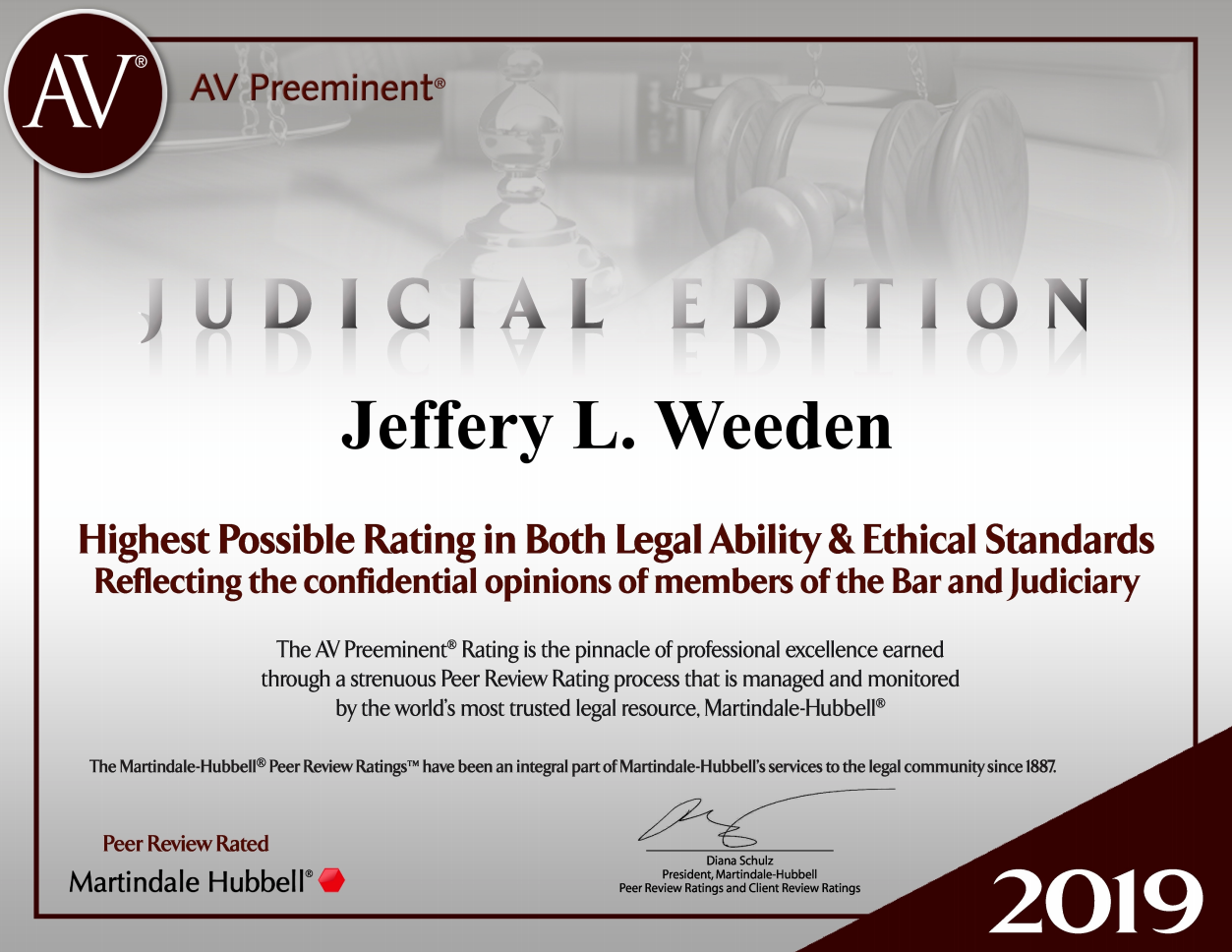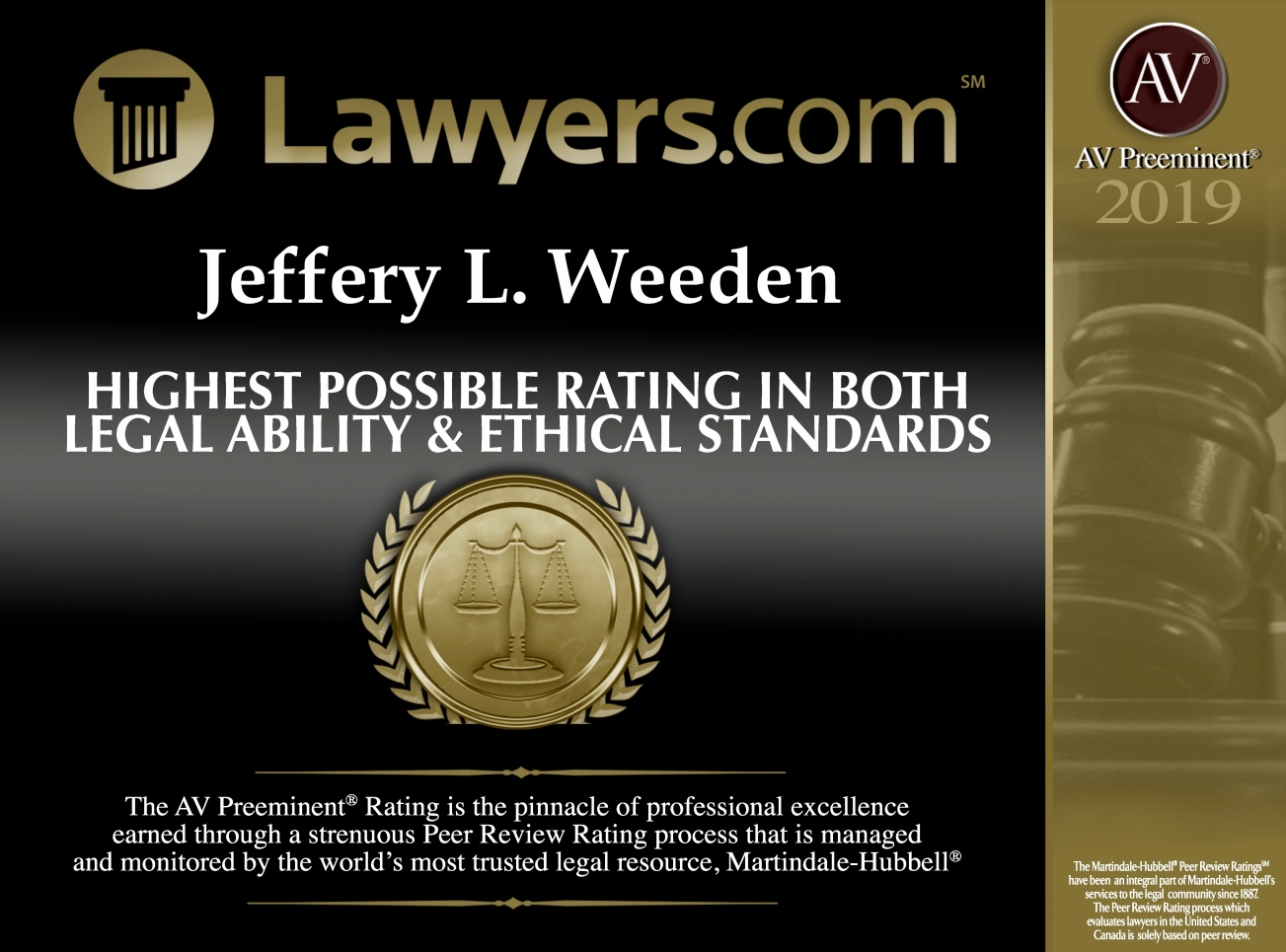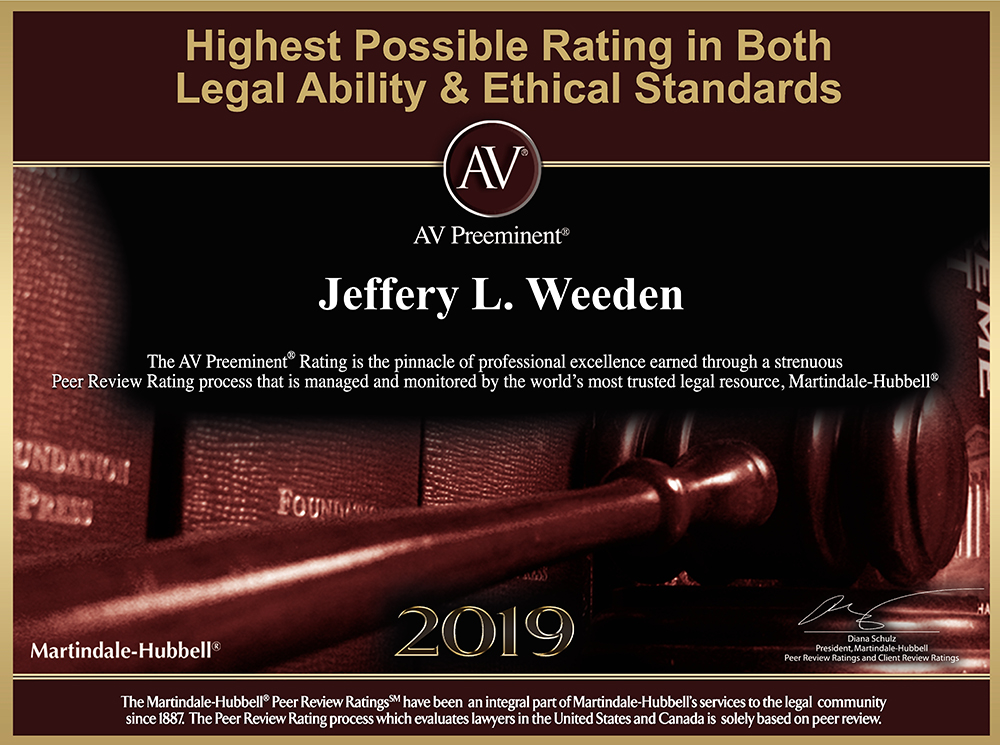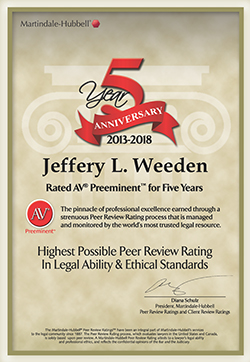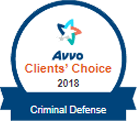Experienced Drug/Narcotic/Controlled Substance Lawyer in Denver & Lakewood, Colorado
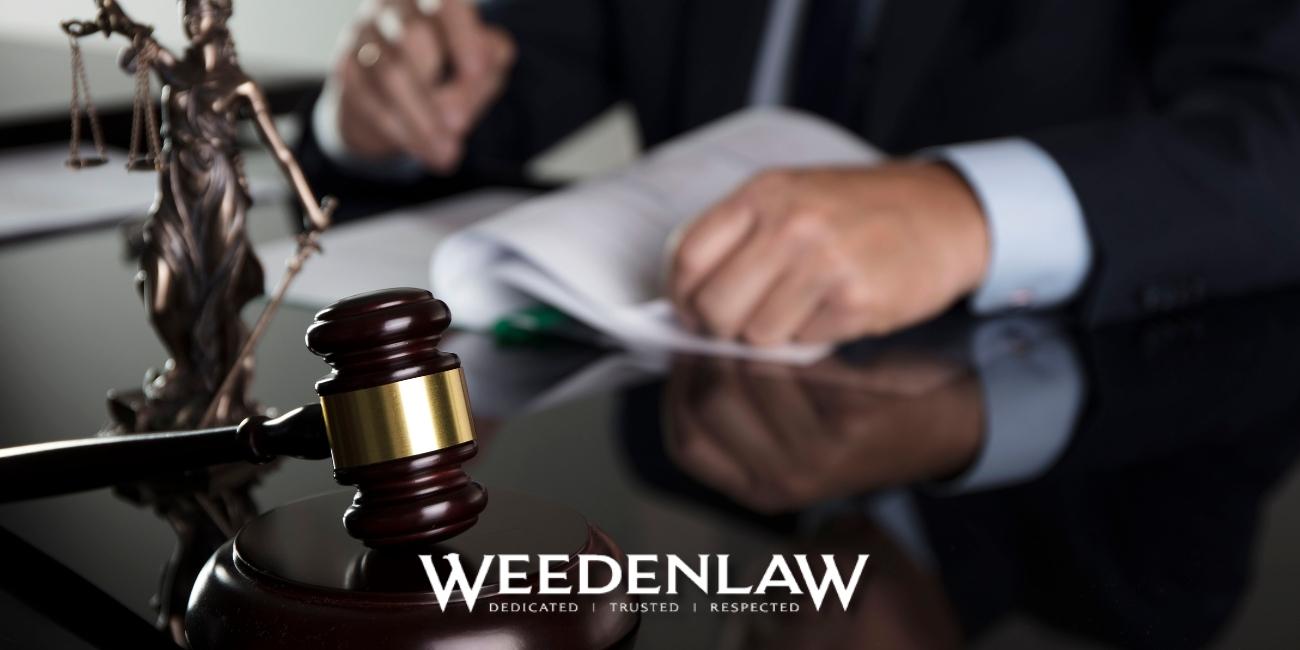
Unfortunately, these ongoing changes have also created widespread confusion about what constitutes a drug offense and the potential consequences. At WeedenLaw, it’s not uncommon for us to meet people who are facing drug charges but do not fully understand why they were charged or what the allegations mean under current Colorado law. As a highly experienced and respected Denver criminal attorney, Jeff Weeden has spent decades representing individuals accused of crimes involving narcotics and controlled substances in Denver, Lakewood, and across central Colorado. He carefully examines the facts of each case, challenges the prosecution’s evidence, and protects your rights at every stage of the criminal process.
If you or a loved one has been arrested for a drug-related offense, don’t face the criminal justice system alone. Call a Denver drug crime defense attorney at WeedenLaw today at (720) 307-4330 to schedule a confidential and completely free consultation regarding your case.
Understanding Colorado Drug Laws
Under both Colorado and federal law, controlled substances are divided into schedules, with Schedule I drugs like heroin carrying the most severe penalties and lower schedules (Schedules IV and V) carrying less.
In any case, drug crimes will be classified as either misdemeanors, felonies, or federal offenses. Misdemeanors usually involve small amounts for personal use, while felonies often include larger quantities or intent to distribute. Federal drug charges apply to cases involving drug trafficking, importation, or large-scale operations and carry the harshest penalties.
Because every case depends on unique factors, having an experienced Denver criminal defense attorney on your side is critical. At WeedenLaw, we explain your charges, protect your rights, and work to achieve the best possible outcome under Colorado law.
Denver Drug Laws
While Colorado sets statewide drug statutes, Denver enforces additional local policies that focus on treatment and diversion for minor possession cases. Still, serious offenses, including possession, distribution, or manufacturing of substances like fentanyl, cocaine, or methamphetamine, can lead to felony charges under state law.
Even with legal marijuana, Denver residents can face penalties for possessing more than one ounce or selling without a license. Because enforcement can differ between jurisdictions, it’s vital to have a Denver drug crime lawyer who understands both local and state laws. At WeedenLaw, we use our knowledge of Denver’s drug laws to build strong defenses and protect your rights.
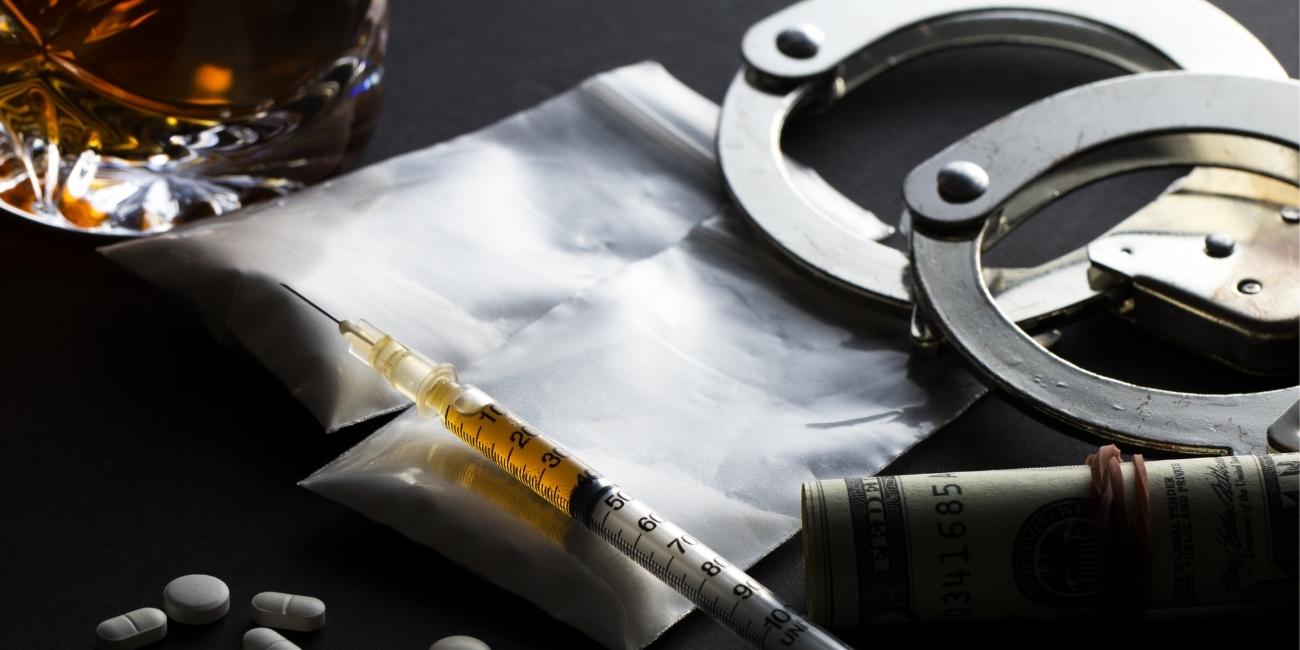
Types of Colorado Drug Crime Cases WeedenLaw Handles
Denver Drug Possession Defense Attorney
Under C.R.S. § 18-18-403.5, it is unlawful to knowingly possess any controlled substance in Colorado. Simple possession charges can apply even if the amount is small or intended for personal use. The severity of the charge depends on the type of drug and quantity involved, ranging from a petty offense for minor possession of certain substances to a felony for more serious cases.
If you’re facing drug possession charges in Denver or anywhere in the state of Colorado, the consequences can affect your record, employment, and future opportunities. A knowledgeable Denver drug possession attorney like Jeff Weeden can carefully review the details of your arrest, challenges unlawful searches or seizures, and works to have charges reduced or dismissed whenever possible.
Denver Drug Distribution Defense Attorney
Under C.R.S. § 18-18-405, Colorado law makes it a crime to dispense, sell, distribute, or possess a controlled substance with intent to distribute. These offenses fall under Colorado possession with intent laws, which carry much harsher penalties than simple possession. Depending on the type and amount of the drug, as well as prior convictions or whether minors were involved, penalties can include substantial fines and lengthy prison sentences.
Because prosecutors must prove intent to distribute, these cases often rely on circumstantial evidence, such as packaging materials, large amounts of cash, digital communications, or scales. That’s why it’s essential to have an experienced Denver drug distribution defense attorney on your side as early on in the process as possible.
Denver Drug Manufacturing Defense Lawyer
Under C.R.S. §§ 18-18-405 and 18-18-406, manufacturing any controlled substance in Colorado is a felony offense. Drug manufacturing charges can involve producing, preparing, or processing illegal drugs such as methamphetamine, cocaine, or synthetic narcotics, as well as cultivating large quantities of marijuana without proper authorization.
These cases are aggressively prosecuted and may carry severe penalties, including long prison sentences, asset forfeiture, and permanent damage to your record. Because law enforcement must prove intent and knowledge of the operation, errors in searches, surveillance, or lab testing can play a critical role in your defense.
Denver Drug Trafficking Lawyer
In Colorado, there is no separate statute specifically labeled “drug trafficking.” Instead, trafficking offenses are prosecuted under C.R.S. § 18-18-405, which covers the sale, manufacture, distribution, or possession with intent to distribute controlled substances (as mentioned above). Once again, the seriousness of a trafficking charge depends largely on the type and quantity of the drug, with larger amounts leading to enhanced penalties and potential mandatory prison sentences.
Denver Drug Paraphernalia Defense Lawyer
Under C.R.S. § 18-18-426, it is illegal in Colorado to use or possess drug paraphernalia, which refers to any item intended for planting, cultivating, manufacturing, testing, packaging, or consuming controlled substances. This can include pipes, syringes, scales, or even plastic baggies, depending on the circumstances.
Although paraphernalia charges are typically misdemeanors, they can still result in fines, probation, and a permanent mark on your criminal record. These charges also frequently accompany more serious drug offenses, such as possession or distribution.
Denver Dangerous Drugs Lawyer
Under Colorado criminal law, crimes involving so-called “dangerous drugs” — methamphetamine, fentanyl, cocaine, and other Schedule I or II substances — carry some of the most severe penalties. A conviction can result in serious consequences, including lengthy prison sentences, heavy fines, and a permanent criminal record.
Because these cases are aggressively pursued by prosecutors, it’s critical to have an effective criminal defense attorney who can analyze the prosecution’s case, identify weaknesses, and challenge unlawfully obtained evidence. As your Denver dangerous drugs lawyer, Jeff Weeden works to protect your rights, negotiate a plea deal when appropriate, and pursue a favorable outcome through every available legal avenue.
Denver Prescription Drug Crime Defense
Prescription drug crimes in Colorado cover a wide range of offenses, including illegal possession, prescription forgery, and doctor shopping (obtaining multiple prescriptions for the same drug from different providers). Even though these medications are legally prescribed to many patients, unauthorized use or distribution is treated as a serious offense under Colorado criminal law.
Commonly misused prescription drugs include opioids, benzodiazepines, and stimulants. Depending on the circumstances, charges can range from misdemeanors to serious felonies, with penalties that may include jail time, fines, and loss of professional licenses.
Denver Juvenile Drug Crime Attorney
Juvenile drug charges can have a lasting impact on a young person’s future. In Colorado, minors may face criminal allegations for possession, distribution, or use of controlled substances, including marijuana, prescription drugs, or other illegal substances. While the juvenile justice system focuses more on rehabilitation than punishment, these cases are still serious and can affect education, employment, and future opportunities.
At WeedenLaw, Denver juvenile defense attorney Jeff Weeden provides compassionate yet strategic representation for minors accused of drug-related offenses. He works to protect juvenile records, advocate for rehabilitation-focused outcomes, and help families pursue diversion programs or alternative sentencing options whenever possible.
Colorado Marijuana Laws & Regulations
One of the big confusions (largely prompted by the legalization of marijuana) is that many Coloradans are now confused about what is and is not legal in the state, and how various drugs are penalized. As Denver marijuana crime lawyer, Jeff knows the ins and outs of the laws regarding marijuana use.
Here are the basics of what you need to know:
- You may possess marijuana for personal use if:
- You are 21 or older; and
- The amount is 28 grams (1 ounce) or less; or
- You have a valid medical marijuana prescription.
- You may not consume or use marijuana in public.
- It is generally legal to give or share 1 ounce or less or marijuana with someone else who is also legally permitted to use it.
- You are legally allowed to grow and cultivate six plants or fewer for personal use. However, only three may be mature at a time, and there are special rules about where and how they can be grown.
- If you use marijuana and drive, you can potentially get a DUID or marijuana DWAI in Colorado. (See our blog: What’s the Difference Between a DUI, DUID, and a DWAI.)
- Colorado’s open container law applies to marijuana, so if you’re traveling, keep it in the trunk, glove compartment, or in a sealed retail bag.
- You cannot use marijuana on any federal land in Colorado.
What are Controlled Substances?
Aside from the regulations surrounding marijuana use in Colorado, other controlled substances that can lead to criminal punishment include:
Schedule V Drugs
Generally considered the “least serious” of controlled substances, Schedule V drugs include over-the-counter cold and cough medicines with codeine. They have been rated as having accepted medical use, but still possess a potential for abuse.
Schedule IV Drugs
These drugs are used medically but have a higher potential for abuse and psychological dependence. They include substances such as Ambien, Valium, and other prescription drugs.
Schedule III Drugs
Drugs under this schedule have accepted medical uses but have also been found to lead to moderate physical dependence and high psychological dependence. They include anabolic steroids, barbiturates, codeine, and ketamine.
Schedule II Drugs
Some of these substances provide a medical use, but all typically result in high levels of both physical and psychological dependence. Schedule II drugs include cocaine, methamphetamines, and prescription opioid pain pills.
Schedule I Drugs
Drugs listed here generally have no accepted medical uses and possess a high potential for abuse and dependence. Examples include heroin, LSD, magic mushrooms, mescaline, PCP, and peyote.
What is Considered a Serious Drug Offense?
When it comes to personal use, Colorado drug laws encourage treatment over incarceration — at least initially for drug possession offenses. As a result, drug possession and use charges are typically classified as misdemeanors. When it comes to more than four grams of Schedule I or II narcotics, or any amount of GHB, Ketamine, or flunitrazepam, however, these charges can increase to a felony. In addition, any drug offense involving the manufacturing or distribution (sale) of drugs is also generally a felony.
The term serious drug offense, defined by the Controlled Substances Act (21 U.S.C. 801 et seq.), requires the manufacturing or distribution (or possession with intent to distribute) of a controlled substance that results in a prison sentence of ten or more years.
Colorado law recognizes seven distinct categories of drug crimes: four levels of felonies, two levels of misdemeanors, and one petty offense. Level 1 drug felonies are the most serious and require the selling and distribution of dangerous drugs.
Level 1 drug felonies include selling more than:
- 225 grams of a controlled substance listed in Schedule I or Schedule II
- 112 grams of methamphetamine, ketamine, heroin, or cathinone
- 50 milligrams of flunitrazepam
- 2 ½ pounds of marijuana or more than one pound of marijuana concentrate to a minor if the defendant is an adult and two or more years older than the minor
- 50 pounds of marijuana or more than 25 pounds of marijuana concentrate
Penalties for Drug Crimes in Colorado
In general, the elements that impact the severity of the charges—and thus, your penalties—include the types of drugs involved, the amount of drugs, and your prior criminal record. Taking all of these factors into consideration, you may find yourself facing one of seven drug charges recognized by our state. Here is how they break down:
- Petty Drug Offense: Penalties include a maximum fine of $100 and the potential for up to 24 hours of community service.
- Level 2 Drug Misdemeanor: Penalties include up to 12 months incarceration and up to $750 in fines.
- Level 1 Drug Misdemeanor: Penalties include 6 – 18 months incarceration and up to $5,000 in fines.
- Level 4 Drug Felony: Penalties include 6 months – 2 years of incarceration, one year of mandatory parole, and up to $100,000 in fines.
- Level 3 Drug Felony: Penalties include 2 – 6 years of incarceration, one year of mandatory parole, and up to $500,000 in fines.
- Level 2 Drug Felony: Penalties include 4 – 16 years of incarceration, two years of mandatory parole, and up to $750,000 in fines.
- Level 1 Drug Felony: Penalties include 8 – 32 years of incarceration, three years of mandatory parole, and up to $1,000,000 in fines.
Note that certain drug crimes may be considered wobblers in Colorado, meaning they can be either felonies or misdemeanors.
Diversion and Alternative Sentencing Options
Having a drug conviction on your record, regardless of the sort of drug crime committed, can have serious implications. As we mentioned before, when it comes to personal use, Colorado drug laws promote treatment over imprisonment. There are a variety of alternatives to jail time, including specialist drug courts, Veterans Treatment Courts, mental health counseling, and deferred sentencing for those who plead guilty to drug offenses in the state.
An experienced drug crime lawyer at WeedenLaw can help you get the treatment you need while also fighting your potential incarceration.
Denver Drug Crime FAQs
Is Cocaine Illegal in Colorado?
Yes, cocaine is illegal in Colorado. It is classified as a Schedule II controlled substance under state law, meaning possession, sale, or distribution of cocaine is a felony offense that can lead to serious criminal charges, prison time, and substantial fines.
Does Having Drugs in Your System Count as Possession?
No, having drugs in your system does not count as possession.
What is a Co-Defendant in a Drug Case?
A co-defendant in a drug case is another person who is charged alongside you for the same alleged offense. This typically occurs when two or more individuals are accused of participating in the same criminal activity, such as possessing, distributing, or manufacturing controlled substances.
How Can I Fight Drug Charges?
The first and possibly most important aspect to fighting drug charges is to know your rights. Under the Fourth Amendment, you are protected from illegal searches and seizures. This means law enforcement officers must have probable cause or your own consent to search you; without either of these elements, anything they obtained is inadmissible.
Calling an experienced Colorado criminal attorney offers you your best chance at successfully fighting the charges you are up against. Your attorney can help inform you of the aforementioned rights, as well as protect them and ensure the police are not infringing upon them. Further, they can help in building a strong defense for you.
There are a number of possible defenses to drug charges in Colorado. These include proving that you never actually had control over the drugs, that law enforcement conducted an illegal search, or that you were entrapped by the authorities, among other things. Your ctiminal defense attorney can help you select the best defense for your unique case.
How Much Do Lawyers Charge For Drug Cases?
The cost of hiring a lawyer for a drug case can vary depending on the nature of the criminal offense, the complexity of the charges, and whether the case goes to trial. Misdemeanor possession cases generally cost less to defend than felony charges involving distribution or trafficking.
At WeedenLaw, a respected criminal defense law firm in Denver, clients receive honest guidance about fees and what to expect throughout the process. Our goal is to provide skilled legal representation tailored to your situation while protecting your rights and working toward the best possible outcome in your case.
Can I Have My Drug Possession Arrest Record Expunged in Colorado?
If you have a juvenile record, almost anything can be expunged, including arrest records, court records, and even convictions. In Colorado, there is less leeway when it comes to adult offenses. While records of arrests that did not lead to prosecution can typically be sealed, sealing adult convictions is more challenging. Some minor or municipal offenses may be sealed automatically, and certain drug-related convictions may qualify, but eligibility depends on the specific circumstances of the case.
Under Colorado law, only certain cases meet the criteria for record sealing, and each has unique requirements. An experienced drug crime lawyer like Jeff Weeden can review your record to determine whether your case qualifies, especially if your charges were dismissed, untried, or resulted in an acquittal. Additionally, defendants who complete a drug diversion program may have their possession charges dismissed entirely.
To learn if your case qualifies for sealing or expungement, contact our knowledgeable Denver expungement attorney at WeedenLaw today for a confidential consultation.
Finding the Best Criminal Drug Defense Attorney for Your Case
When you’re facing criminal charges, finding the right criminal defense lawyer can make all the difference in the outcome of your case. The Denver drug crime attorneys at WeedenLaw have extensive experience navigating the legal process and understand the serious legal consequences that accompany drug-related offenses.
Our firm is committed to providing an aggressive defense aimed at protecting your rights and minimizing penalties. We take the time to evaluate every detail of your case, identify weaknesses in the prosecution’s arguments, and pursue the most effective strategy to have your charges reduced, dropped, or dismissed.
Beyond legal defense, our compassionate team also assists clients struggling with addiction by connecting them to trusted local substance abuse and recovery resources in Denver, CO. With WeedenLaw, you gain more than representation. You gain a dedicated ally focused on your future and freedom.
Why Make Jeff Weeden Your Trust Denver, CO Drug Violations Attorney?
When you’re facing a criminal case involving drug-related charges, experience and commitment matter. At WeedenLaw, attorney Jeff Weeden brings a proven track record of success in defending clients against a wide range of controlled substance offenses. He understands that drug charges are often linked to deeper issues such as addiction and works to ensure clients receive fair treatment under the law.
Jeff Weeden uses effective defense strategies tailored to each client’s unique circumstances, whether that means pursuing rehabilitation-based alternatives, negotiating for reduced charges, or taking the case to trial. Recognized as an outstanding attorney throughout Denver and across Colorado, he is dedicated to protecting your rights, reputation, and future.
When your freedom is at stake, turn to a defense lawyer who combines skill, compassion, and tenacity. Contact WeedenLaw today to discuss your case and learn how Jeff Weeden can help you move forward with strength and confidence.
How WeedenLaw Defends Clients Facing Drug Charges in Denver & Surrounding Areas
Our legal team has years of experience handling drug cases throughout Denver County, Jefferson County, Douglas County, and beyond, providing comprehensive representation from the moment a criminal investigation begins through court hearings, plea bargaining, and even post-trial motions when necessary.
We understand how overwhelming the legal system can be, especially when your freedom and future are at stake. That’s why Denver criminal defense lawyer Jeff Weeden approaches every case with a strategic defense tailored to the facts, evidence, and goals of each client. Whether that means challenging unlawful searches, disputing the validity of evidence, or negotiating with prosecutors for reduced penalties, WeedenLaw fights tirelessly to protect your rights.
Contact WeedenLaw to Speak With an Experienced Denver, Colorado Criminal Defense Lawyer Today
When you face serious criminal charges, you need legal counsel from an experienced attorney who will put your best interests first. With offices in Denver and Lakewood, WeedenLaw defends clients across the Front Range in drug and related criminal matters. Our law firm is committed to achieving the best possible outcome for every client—whether through dismissal, acquittal, or alternative sentencing options focused on rehabilitation.
Request a free consultation now by completing our online case review form, emailing jlweeden@weedenlaw.com, or calling (720) 307-4330 to speak with a knowledgeable Denver criminal defense attorney today and get clear guidance on your next steps.




